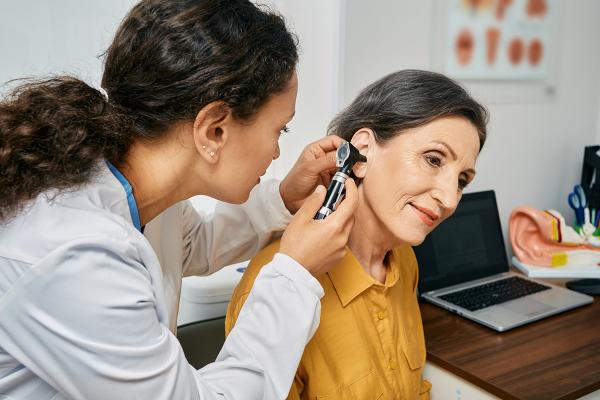
EPIC Hearing Healthcare helps members access hearing exams, hearing aids and more. Sign in to learn more and check eligibility.
Learn what these devices are all about — and why they may be an excellent option for you.

Hearing aids have become high-tech devices. Each hearing aid has a computer chip embedded in it. This means the devices can be programmed to adjust to your hearing needs.1
So it’s not surprising that getting a pair is an investment. How big of one? The average price for prescription hearing aids without insurance or discounts is roughly $4,000.2 But that doesn’t mean you have to pay that much for high-quality devices.
That’s where private-label hearing aids come in. They’re typically more affordable. Yet they have many of the same tech features as name-brand devices.
Read on to learn what private-label devices are all about. And why they could be a good choice for you.

EPIC Hearing Healthcare helps members access hearing exams, hearing aids and more. Sign in to learn more and check eligibility.
You’ve probably seen private-label products at your grocery store. The store’s brand of canned soup, for example, might be on the shelf right next to the same item from national brands. The store brand is made just for that retailer and often costs less.
But the ingredients are usually similar in both the store-brand item and the big-brand item. In many cases, store brands are made by the same large companies that make the national brands.3
That’s one way to think about private-label hearing aids. These types of hearing aids are typically made by one of the major hearing aid companies. But they’re sold under a different brand name by specific networks or retailers, says Brandon Lewis. He’s a licensed hearing aid dispenser and product manager for EPIC Hearing.
For example, EPIC Hearing has its own private-label brand called Relate®. These hearing aids are sold only through providers in the EPIC Hearing network.
There are several reasons to consider private-label devices.
Like any electronic device, hearing aids need to be serviced from time to time. So it’s important to learn about the warranty that comes with your devices. And to understand the network of providers who can support you.
Did you know that many hearing benefits, including a hearing exam and consultation, are covered through EPIC Hearing Healthcare? Learn more.
Sources
Information is for educational purposes only and is not a substitute for the advice of a licensed medical provider. Consult your provider prior to making changes to your lifestyle or health care routine.
Relate® is a registered trademark of Ear Professionals International, LLC and is manufactured by Sonova. For assistance, if needed, or to report unexpected operations or events please contact Sonova at [email protected].